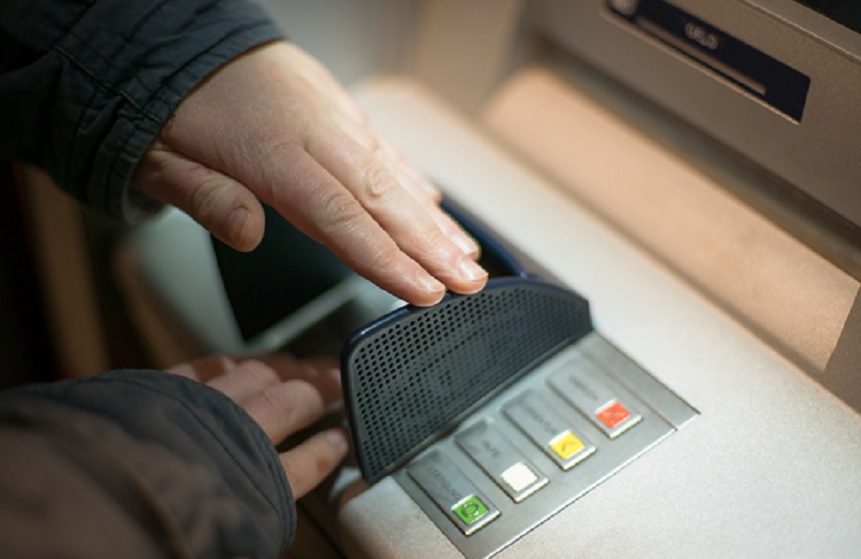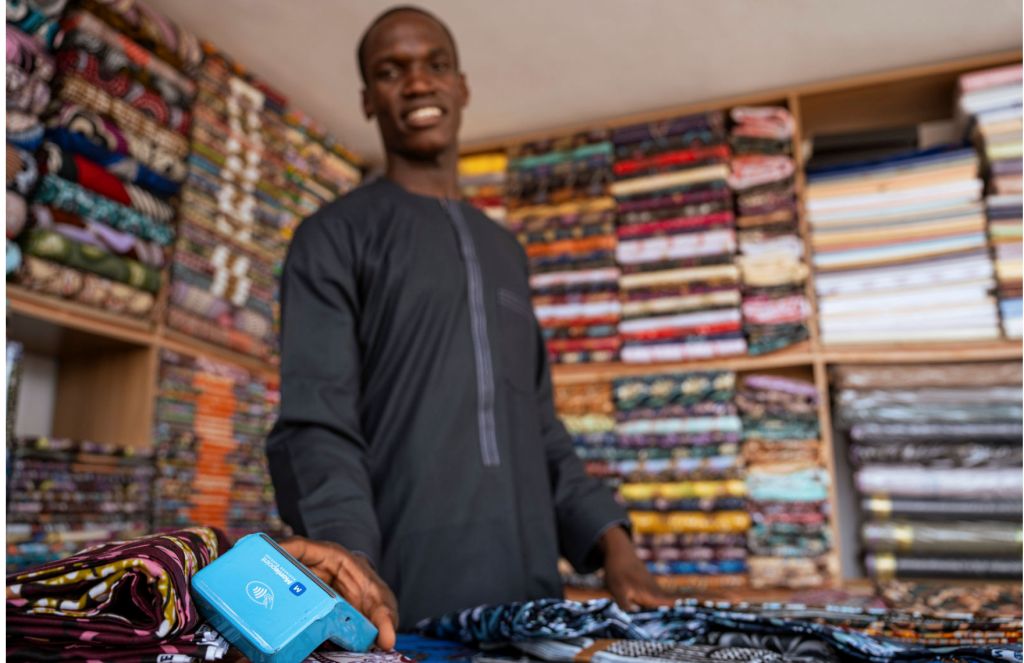Banking
Beyond Fees: Can CBN’s New ATM Policy Solve Nigeria’s Banking Efficiency Problem?

By Oluwatobi Rasaq Alaka
On February 10, 2025, the Central Bank of Nigeria (CBN) introduced a new ATM withdrawal fee structure set to take effect from March 1, 2025. The goal? To reduce operational costs for banks and improve ATM access nationwide.
This announcement has sparked conversations among consumers, financial institutions, and industry experts. While the policy is positioned as a solution to Nigeria’s ATM challenges, a deeper issue remains unaddressed—transaction inefficiencies.
For years, Nigerian banking customers have struggled with ATM-related frustrations, from failed withdrawals to slow dispute resolutions and system downtimes. Will adjusting fees make ATMs more accessible? Possibly. But will it make transactions faster, more reliable, and hassle-free? That’s a different question.
The Real Issue: Inefficiency Over Cost
Nigeria has less than 22,000 ATMs, serving a population of over 200 million people, and access to cash remains difficult due to frequent cash shortages, connectivity failures, and reconciliation delays.
For many Nigerians, ATM challenges extend far beyond withdrawal fees. In a 2024 report, nearly 30% of ATM transactions failed due to network issues, cash shortages, or other operational failures.
The current system faces persistent challenges, including frequent transaction failures where customers are debited without receiving cash, leading to frustration and financial inconvenience. Dispute resolution is also slow, with refunds for failed withdrawals often taking days or even weeks to process. Additionally, the limited availability of ATMs—due to high operational costs—prevents banks from expanding their networks, resulting in long queues and restricted access to cash for many customers.
These issues indicate that while fee adjustments may increase ATM installations, they won’t necessarily make transactions more efficient or customer friendly.
Why Fees Alone Won’t Solve the Problem
The new policy is expected to help banks offset the rising cost of ATM maintenance and cash handling, potentially leading to an increase in ATM installations across the country. However, simply increasing the number of ATMs or the cash within them without improving their reliability will not solve the core issue.
Expanding the number of ATMs won’t be effective if transaction failures remain frequent. Lower fees will have little impact if customers still spend hours trying to withdraw cash. Even with improved infrastructure, adoption will be limited if trust in ATM reliability remains low.
For CBN’s initiative to truly succeed, banks need to go beyond just cost recovery and expansion—they must focus on efficiency, security, and automation in ATM transactions.
Technology as the Missing Link
One of the biggest gaps in Nigeria’s financial system is the lack of real-time, automated transaction processing for ATM withdrawals. This is where technology can play a transformational role. Several innovative financial solution technologies have the potential to revolutionize ATM efficiency. However, advancements like AI-driven fraud detection can enhance security by preventing unauthorized withdrawals, while real-time settlement solutions can eliminate delays in refunding failed transactions, improving overall customer experience and trust in the system.
Some Nigerian banks have already adopted blockchain-powered solutions for ATM transactions. These systems enable instant reconciliation and faster refunds when failures occur. Zone Payment Network, among others, has demonstrated how blockchain can streamline payment processing, reducing disputes and enhancing customer experience.
By integrating blockchain and real-time payment infrastructure, financial institutions can increase efficiency, eliminate delays, and restore consumer trust in ATM transactions.
A Holistic Approach is Needed
CBN’s new policy is a step in the right direction, but for meaningful, long-term improvements, Nigeria’s banking sector must go beyond fee adjustments. A combination of regulatory policies and technological innovation is essential to create a system where ATM transactions are not just affordable—but also seamless, fast, and reliable.
To achieve this, key stakeholders must prioritize real-time reconciliation to ensure transaction failures are resolved instantly. Investing in decentralized financial infrastructure can help reduce transaction bottlenecks, while leveraging AI and automation will optimize ATM uptime and minimize failures, ultimately improving efficiency and customer experience.
The Bigger Question
As CBN works to improve ATM accessibility through fee restructuring, financial institutions must consider the bigger picture—does Nigeria’s ATM system need more machines, or does it need better technology to ensure smooth transactions?
If we truly want to enhance financial services, the conversation must shift from fees to efficiency.
Would better technology adoption make a bigger difference than fee restructuring?
Oluwatobi Rasaq Alaka is the Corporate Communications Manager at Zone.
Banking
Moniepoint Processes N412trn Transactions, Disburses N1trn Loans in 2025

By Adedapo Adesanya
Nigerian financial services firm, Moniepoint Incorporated, processed N412 trillion in transaction value and disbursed more than N1 trillion in loans to small businesses in 2025, as the company continues to grow Nigeria’s expanding retail payments and credit structure.
The company said it handled more than 14 billion transactions during the year and now powers about 80 per cent of in-person payments nationwide, underscoring the increasing concentration of payment flows through a small number of fintech platforms.
Moniepoint also averaged 1.67 billion monthly transactions in 2025 and grew its card user base by 200 per cent, with its cards being used 1.7 million times daily.
The organisation also processed over 500,000 data renewals daily, while customers spent N90 million ($64,264) daily at gyms.

Moniepoint’s scale reflects a broader shift in Nigeria’s payments landscape, where point-of-sale terminals and digital transfers have become central to everyday commerce, from neighbourhood shops to open-air markets.
Founded in 2015, Moniepoint has evolved from a backend technology provider into Nigeria’s largest merchant acquirer, offering payments, banking, credit, foreign exchange and business management tools to more than 6 million active businesses.
The company said it expanded lending to small businesses that are often excluded from bank credit, disbursing more than N1 trillion in loans through its microfinance banking unit in the year under review.
“Our focus has been on building infrastructure that works for how businesses actually operate,” said Mr Tosin Eniolorunda, Moniepoint’s founder and chief executive, pointing to the prevalence of informal trade in Africa’s largest economy.
In 2025, Moniepoint became a unicorn after it raised more than $200 million in a Series C funding round backed by investors including Development Partners International, Google’s Africa Investment Fund, Visa, the International Finance Corporation and Verod Capital, providing capital to scale its payments and financial services operations.
Beyond acquiring, the company said its switching and processing subsidiary, TeamApt Ltd, secured licences from Mastercard and Visa to operate as a processor and acquirer, enabling it to handle international card payments and provide switching services to other businesses across Africa. Its web payments gateway, Monnify, processed N25 trillion in transactions during the year.
Recently, the Central Bank of Nigeria (CBN) upgraded Moniepoint’s microfinance bank to a national microfinance bank licence, allowing it to expand its footprint across the country and broaden the range of products that it can offer.

Banking
Standard Bank Helps Aradel Energy With $250m Financing Facility

By Aduragbemi Omiyale
A $250 million financing facility to support the acquisition of about 40 per cent equity in ND Western Limited from Petrolin Trading Limited has been secured by Aradel Energy Limited, a wholly owned subsidiary of Aradel Holdings Plc.
The funding package was facility for the energy firm by Standard Bank, which comprises Stanbic IBTC Capital Limited, Stanbic IBTC Bank Limited, and the Standard Bank of South Africa Limited.
The facility, Business Post gathered, was structured to support Aradel Energy’s strategic growth agenda, the refinancing of existing loan facilities, and the funding of increased production from the company’s existing asset base.
Aradel Energy is the operator of the Ogbele and Omerelu onshore marginal fields, as well as OPL 227 in shallow water terrain.
Prior to the transaction, Aradel Energy held a 41.67 per cent equity interest in ND Western, and following the completion of the acquisition, its shareholding in ND Western has increased to 81.67 per cent.
ND Western holds a 45 per cent participating interest in OML 34 and a 50 per cent equity interest in Renaissance Africa Energy Company Limited, the operator of the Renaissance Joint Venture and a 30 per cent owner of one of Nigeria’s largest and most strategic energy portfolios.
As a result of the transaction, Aradel Energy’s indirect equity interest in Renaissance has increased to 53.3 per cent, significantly strengthening the company’s upstream position and long-term value creation potential.
Standard Bank acted as Global Coordinator and Bookrunner, leading the structuring, execution, and funding of the facility, affirming its deep sectoral expertise and reinforces its position as a leading financier in Africa’s energy industry.
This transaction reinforces Standard Bank Group’s commitment to providing strategic capital to clients as they execute on their transformative growth objectives.
By delivering tailored financing solutions that enable sustainable value creation, the Bank remains a trusted partner to leading corporations across Africa’s evolving energy landscape.
“As Aradel Energy consolidates its position as one of Nigeria’s leading oil and gas companies, Stanbic IBTC Bank is proud to serve as a trusted long-term partner supporting the company’s growth ambitions,” the Executive Director for Corporate and Transaction Banking at Stanbic IBTC Bank, Mr Eric Fajemisin, stated.
Also commenting, the Regional Head of Energy and Infrastructure Finance for West Africa at Standard Bank, Mr Cody Aduloju, said, “The transaction illustrates Standard Bank’s ability to deliver large-scale, tailored funding solutions and further demonstrates our support to the fast-growing indigenous companies of Nigeria’s oil and gas sector.”
The chief executive of Aradel Holdings, Mr Adegbite Falade, said, “The acquisition bolsters Aradel Energy’s competitive positioning across Nigeria’s oil and gas value chain and supports our commitment to strategic growth, asset optimisation, and enduring value creation. We are pleased to have partnered with Standard Bank, who supported us and delivered a fully funded solution under very tight timelines.”
Banking
CBN Upgrades Operating Licences of OPay, Moniepoint, Others to National

By Modupe Gbadeyanka
The operating licences of major financial technology (fintech) platforms like OPay and Moniepoint, have been upgraded to national by the Central Bank of Nigeria (CBN).
Also upgraded by the banking sector regulator were PalmPay, Kuda Bank, and Paga after compliance with some regulatory requirements, allowing them to operate across Nigeria.
Speaking at annual conference of the Committee of Heads of Banks’ Operations in Lagos recently, the Director of the Other Financial Institutions Supervision Department of the CBN, Mr Yemi Solaja, said the licences were upwardly reviewed after the financial institutions met some requirements, including the Know-Your-Customer (KYC) policy.
“Institutions like Moniepoint MFB, Opay, Kuda Bank, and others have now been upgraded. In practice, their operations are already nationwide,” he said at the event.
The upgrade also reinforces financial inclusion, as fintechs and agent networks continue to play a pivotal role in providing access to banking and payments services, especially in rural and underserved areas.
The central bank executive stressed the importance of physical presence for customer support.
According to him, “Most of their customers operate in the informal sector. They need a clear point of contact if any issues arise,” to strengthen internal controls, and enhance customer service, particularly around KYC and anti-money laundering (AML) processes.
-

 Feature/OPED6 years ago
Feature/OPED6 years agoDavos was Different this year
-
Travel/Tourism9 years ago
Lagos Seals Western Lodge Hotel In Ikorodu
-

 Showbiz3 years ago
Showbiz3 years agoEstranged Lover Releases Videos of Empress Njamah Bathing
-

 Banking8 years ago
Banking8 years agoSort Codes of GTBank Branches in Nigeria
-

 Economy3 years ago
Economy3 years agoSubsidy Removal: CNG at N130 Per Litre Cheaper Than Petrol—IPMAN
-

 Banking3 years ago
Banking3 years agoSort Codes of UBA Branches in Nigeria
-

 Banking3 years ago
Banking3 years agoFirst Bank Announces Planned Downtime
-

 Sports3 years ago
Sports3 years agoHighest Paid Nigerian Footballer – How Much Do Nigerian Footballers Earn












